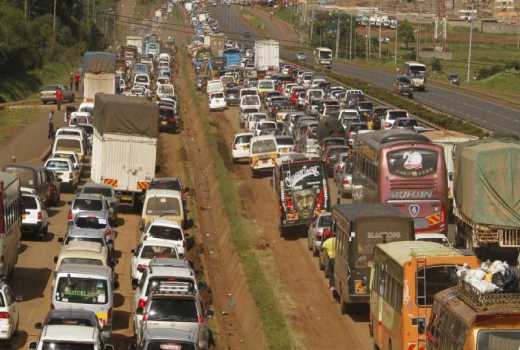
The snarling traffic jam on Thika superhighway only five years after its completion should be celebrated by urban economists. The road was a free experiment whose results we can now report. The hypothesis could have been something like; does construction of a new facility such as a highway or airport spur economic growth?
Most Kenyans on the route are bitter with the jam; they have to wake up at 4am to be in office on time. But they have a good reason to be annoyed. Where else in the world are speed bumps erected on a superhighway? Where else in the world does a superhighway end on a roundabout that is a bus stage?







